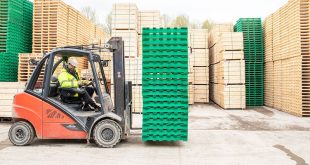O father Abram!
What these Christians are,
Whose own hard dealing teaches them suspect
The thoughts of others
So it is to be a hard Brexit rather than a soft Brexit. Whatever way the Government chose to handle this, it was always going to be far more difficult to manage than the rhetoric of the Leave campaigners led 52% of us to believe, back in June.
We are, according to Mrs May’s speech yesterday, not going to be able to play a part in the Single Market. Instead we will aim to re-negotiate trade deals with those who remain in the Single Market, to ensure that our economy gets the best post-EU start possible. Yeah right. Because our previous EU negotiations have been so good. Not. Mr Cameron, I’m looking at you.
I suppose we shouldn’t be surprised by this. The hope that Britain could still play a part in the Single Market, whilst not accepting the freedom of movement part was rather like ditching the expensive gym membership you booked after Christmas but still expecting to get free use of the Olympic-sized swimming pool.
One of the problems thus far has been the uncertainty. No-one really knows how this thing is going to pan out. What we do know, thanks to yesterday is the following:
- The Government intends to take back control of our borders – because of the huge pressure on public services caused by excessive migration. Personally, I think chronic underfunding is causing rather more damage to our public services, but what do I know, I’m not a politician?
- The UK will no longer have to adhere to the European court of justice – because leaving the EU properly means being totally in charge of our own laws.
- We will not be part of the Single Market because we can’t have our migration-control cake and eat it.
- The UK will come out of the EU customs union, but will try to strike a separate deal to make trading as “frictionless as possible”. Note – not frictionless, but frictionless as possible. That is not the same thing at all.
- We won’t be paying humongous sums to the EU budget, but might pay towards specific programmes. Or, to put it another way, we will try to cherry-pick what we give money to and what we don’t. Good luck with that, David Davis.
- What we will aim for is a “comprehensive, bold and ambitious free trade agreement” with the EU. And, just in case, we’ll be trying to get something similar with the rest of the world too.
We still don’t know how any of this is going to work in practice, nor how it will affect – adversely or otherwise – the hundreds of companies who, since 1987, have taken advantage of the Single Market to build their businesses on cross-border platforms.
Merchanting tends to be a ‘local businesses for local customers’ kind of deal, so maybe the effect will be muted on that side. Manufacturing, however, is a different kettle of fish. How will any new customs and trade deal affect those suppliers who, being part of pan-European or pan-global operations, have set up centres of manufacturing excellence across the EU? If a company is making, say, one range of radiator over here and another range in Holland because that is the best use of its resource, what are the implications for selling those Dutch radiators here?
All questions that we need answers to if we are to get over this crippling uncertainty.
May’s speech yesterday seemed to imply that she believes the UK can be a bigger economic fish if we play hardball with the EU. Have we just chosen to live in a smaller pond?
 Builders Merchants Journal – BMJ Publishing to Builders Merchants and the UK merchanting industry for more than 95 years
Builders Merchants Journal – BMJ Publishing to Builders Merchants and the UK merchanting industry for more than 95 years



